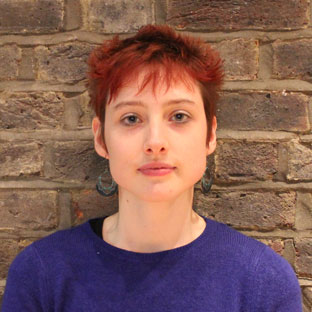Although individuals of all ages will feel the brunt of climate change, it is ultimately the younger generation and generations to come who will suffer most. That is why it is key to involve young people in the discussion and giving them a voice in working out solutions and also why it is incredibly exciting that the RSA extended its events programme to do just that.
Tuesday night saw the third event in a series around the seven dimensions of climate change, New Voices for Climate Change, which brought together school-age students and young people to deliver their thoughts and views on this increasingly urgent global issue. Pupils from four of our RSA Academies and a fifth student from Trinity Catholic School all spoke eloquently and passionately, with a sophisticated grasp of an incredibly complex subject.
These new voices between them covered an impressive range (see our Twitter feed to get a feel for topics covered or watch the live stream here), though ultimately concurred that scientists are wasting precious time getting wrapped up proving the sceptics wrong. The science is clear, said the students – it’s now time to put this energy into developing innovate solutions.
The chair, Jonathan Rowson, added to this line of thought, highlighting how climate change is seen as an expert discourse, tying in with research showing that the jargonistic nature of the climate change debate is putting young people off. Considering that some of the major obstacles to reducing carbon emissions are behavioural and cultural, this is where education can play a pivotal role.
Feedback from the RSA Academies students attending the event made this painfully obvious, with one student commenting that they “want to get involved with climate change and try and find out ways that I can reduce my carbon footprint” but didn’t know where to start. Many suggested cutting down car use or recycling more but none knew how to quantify what difference this would actually make.
And yet, as the panel of young people discussed in the second part of the programme, there is a danger in making individuals feel guilty that they aren’t doing enough. But the truth is we, as individuals, could never ‘do enough’ just by cutting our personal carbon emissions. The panel agreed that the much bigger players in this global game are governments and businesses. They’re the ones who need to unite and act, to impose laws, to stop relying on fossil fuels, to invest in renewables. Lobbying for divestment in fossil fuels is one way, then, in which individuals can harness their energy and anger, both of which these new voices had in spades, to push for real change (and the Guardian has a timely campaign on just this issue).
Indeed, it was this energy and anger that fuelled a palpable buzz both during and after the event. Students, teachers and other members of the audience all excitedly chatted about plans to go back to their schools and organisations to raise awareness, to spread the word, to start a discussion. However, as was rightly highlighted by the panel, there are other voices still glaringly missing from the debate – notably those from poorer countries who will, and in some cases already are, bear the brunt of a drastically changing climate. And so, by the end of the night the take-home message was clear: if we are to come together to find what needs to be a truly global solution, we must then fight for these collective new voices on climate change to genuinely be heard.

Be the first to write a comment
Comments
Please login to post a comment or reply
Don't have an account? Click here to register.